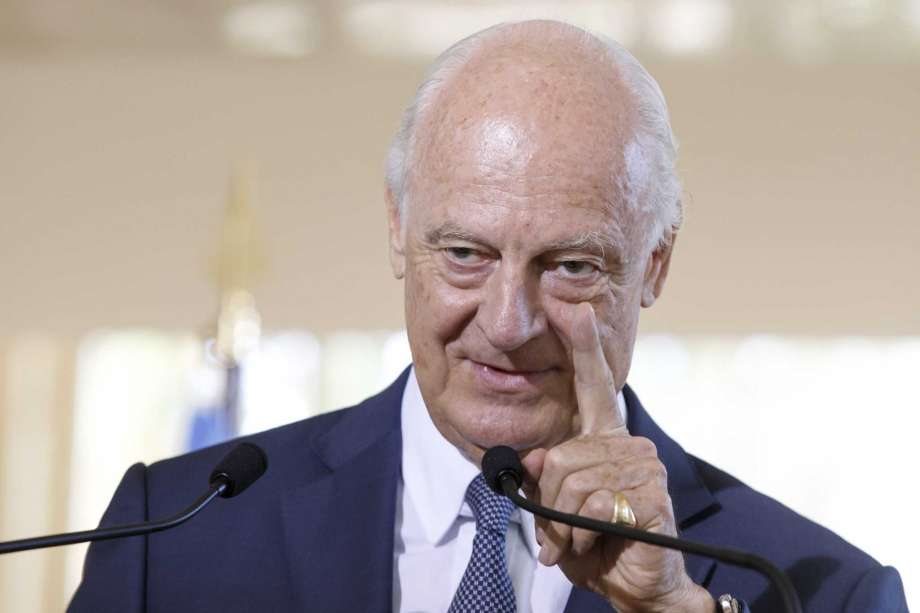UN envoy De Mistura puts priority on main opposition “unifying” with smaller, Russia-supported factions
FRIDAY FEATURE
How the Assad Regime Held On to Its Sarin
UN envoy for Syria Staffan de Mistura has pushed back the next set of political talks between the Assad regime and the opposition.
De Mistura had said the Geneva talks, begun early this year, would resume in September. But on Thursday he said the discussions would now be in October or November.
The delay is in part because De Mistura has set aside the main Syrian opposition and rebels, represented in the High Negotiations Committee. Instead, he is looking for a body which will also include members of an “opposition” preferred by Russia, the main ally of the Assad regime.
Moscow has used talks in Cairo with smaller factions — such as the al-Ghab group of Ahmad Jarba, the former head of the Syrian National Coalition — to claim progress with “de-escalation zones” throughout Syria.
The Geneva discussions have made little progress. Bashar al-Assad has refused to give up power in a political transition, and the regime has rejected opposition demands for an end to bombing and bombardment — with attacks continuing in areas such as the Damascus suburbs despite the supposed de-escalation zones — a halt to sieges, and the release of political prisoners.
De Mistura did not refer yesterday to these conditions. Instead, he indicated that the priority is an October meeting between the main opposition and the smaller factions “to take stock of the realities on the ground”, with a view to their unification.
Before that, he said, he wlll briefly meet the oppositions and regime around mid-September in Geneva “on the agenda for the real substantive talks”: “Regarding the government, we are counting very much on Russia, on Iran, on anyone who has got major influence, and on the government of Syria to be ready finally to initiate when they are invited to Geneva, a genuine, direct negotiation with whatever platform comes out.”
De Mistura claimed a small advance with the delivery of aid to the besieged opposition town of Douma, northeast of Damascus, on Thursday. He said this followed a letter from Russian Defence Minister Sergei Shoigu in early August.
Fifty trucks with with relief items for 35,000 people reached Douma, the central opposition area remaining in the Damascus suburbs.
“We are seeing just today one of those examples, and I am expecting and hoping that this will become a pattern,” De Mistura said.
The Assad regime had rejected all UN requests for aid deliveries to beseiged areas since May.

